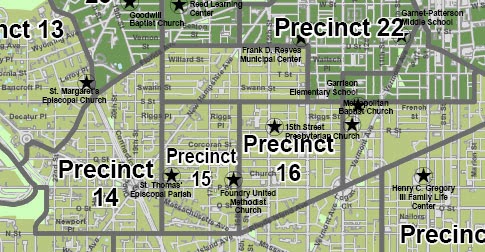Here it is. This is my graduation speech.
Classmates, teachers, parents, friends, non-friends, and gatecrashers I am Cristina Angel and it is an honor to be speaking in front of all of you. We're all here to celebrate our departure, our release, and our freedom. Today is the day were we'll all say that we are sad, and some can even pull out those eye drops, and pretend we're devastated only to wake up tomorrow with the biggest headache in high school history yet. I say this of course because today we'll eat so much chocolate to fulfill our broken hearts and well, sugar levels, right? I honestly thought of this moment as a very scary situation: me falling up the stairs when walking up to this podium, you laughing and pointing at me, your uncle Juan choking up on his own breathing due to his severe asthma problems, me blushing until my face melts like wax, you making that "oh!" sound of pity and horror. Ah! That's the dream.
But I really want to start off by directing all of your focus to a segment of the 2012 piece that pretty much became the anthem for all the stuck up ballers, if that even means anything. I'm talking of course about the song, and I'll be using a euphemism for the first word of the title, called "[Ninjas] in Paris" by Jay Z And Kanye West. It is with a segment of their beautiful song that the graduating class of 2014 must identify with in this specific moment of our lives: "(Ball so hard) This shit weird, we ain't even s'posed to be here (Ball so hard) Since we here, it's only right that we'd be fair"
Now, standing here is weird. Graduating is definitely weird. But being part of a class composed of 157 freaks, which you've known the majority for about 80% of your life and having to say goodbye to all of them feels very weird. And, I mean, today is definitely a weird day. As Jay Z said it himself, "we are not supposed to be here". Graduation was something that was going to happen in a million years, but never today.
We've been together for about, what? Gosh, like 1,2,3,4,5... fourteen centuries together? Yeah. That's a pretty long time. For fourteen consecutive years I have been seeing all of you every single day. In classes, at lunch, at parties, at standardized testing locations, at the supermarket, at the movies, at concerts, at restaurants, at car washes, etc. It's just - it's been such a long time with all of you, and I say this from the bottom of my heart, with complete sincerity, I think we need to take a break. It's not you, it's me. There is someone else, and he sounds pretty cool, so I think I just need to stop seeing all of you for like 5 minutes.
Speaking of time, did you hear about Robert Pattinson's retirement from the Twilight movies? He said he was too old for that. Yeah, cause he wasn't too old already in the first movie! But you know who else is too old? Chico, like our PE teacher. And guess what? He's fitter than all of you, audience/peasants, combined. Not more than me of course, cause I obviously workout on weekends.
But what I'm trying to say here is that just as Robert Pattinson, just as Chico, just as Amparo Grisales, we all grow too old to do certain things in life. We, the seniors at CNG, have just reached the point of being too old to be high schoolers. We've reached the point where we now have to be parents. OH NO, wait that actually sounds wrong. We've reached the point where we now have to be our own mothers. Dammit, no way! We've just simply reached the point where we gotta be the strong, black, independent woman who don't need no man. Kinda like Miley Cyrus. Yeah, like Miley. We're moving on from that Hannah Montana stage, into the world where we're starting to twerk with our tongues all over our faces and spending lots of money on stuff. Just...stuff.
So I simply want to end this by sharing a little bit of what I learned. I have some advice for all of you peasants out there, no matter if you're a CNG student, CNG alumni, a parent, a doctor, a ballerina, an astronaut, a bomb deactivator working for the Tijuana DEA team, I don't care who you are. My advice is, and it's truly what I actually learned here at CNG, that no matter where you are or where you are headed, never, and I repeat never, be late. Why? Well, 99.999% of the times you're late, you will be encountered with the following situation: Mr. Viscardi will shoot a red laser beam coming from his dark shades into your heart that will slowly burn it, and leave you agonizing on the floor while he blurts out an evil, long, monotone laugh. No matter where you are, the man will find you. Trust me, he really is famous for his ubiquity.
With that being said, I just want to thank all of you for being a part of my life, because well...no actually, you're welcome everybody. I know meeting me was definitely one of the most amazing things that could've happened to all of you. I hope you all achieve your goals and dreams and hopefully one of you turns out to be the new Oprah or Bill Gates or JK Rowling and when that happens, maybe I'll consider befriending you again. Have a nice life and good luck!




.PNG)
.PNG)
.PNG)












